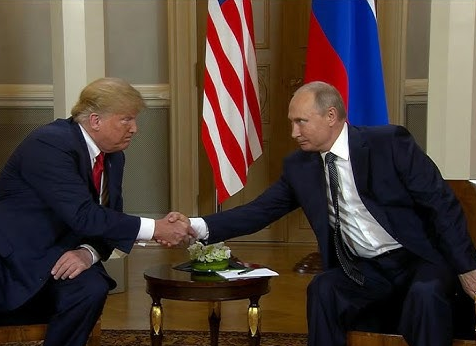In his first public statement following the U.S. election, Russian President Vladimir Putin expressed optimism about working with President-elect Donald Trump, praising his intelligence and leadership experience. Speaking during a visit to Kazakhstan, Putin offered congratulations to Trump on his electoral victory over Vice President Kamala Harris and hinted at potential progress on the long-standing Ukraine-Russia conflict.
“As far as I imagine the again-elected president, he is actually an intelligent person, already quite experienced,” Putin remarked. “I think he will find a solution.” His comments came at a critical juncture, with the Ukraine conflict still unresolved and global attention focused on escalating tensions in the region.
Putin reiterated his conditions for peace, emphasizing that Ukraine must abandon its NATO ambitions and withdraw troops from four regions that Russia has claimed since the start of the war. While these demands have faced strong resistance from Kyiv and its Western allies, the Russian president’s remarks hinted at a willingness to re-engage in dialogue under Trump’s leadership.
The relationship between Trump and Putin has often been a subject of international scrutiny. Observers note that Trump’s presidency could mark a turning point for U.S.-Russia relations, especially if dialogue leads to a negotiated settlement in Ukraine. However, critics caution that Russia’s terms may be too rigid to foster genuine progress, as Ukraine has consistently rejected Moscow’s territorial claims and NATO-related ultimatums.
Putin’s remarks also signal an attempt to reset relations with Washington, which have been fraught since the early days of the Ukraine invasion. The Russian president expressed readiness for renewed diplomacy, a move analysts suggest may reflect Moscow’s desire to ease international pressure as economic sanctions and military support for Ukraine continue to strain Russia’s resources.
While Trump has yet to outline a specific approach to the Ukraine conflict, his history of unconventional diplomacy and focus on bilateral deals could influence the trajectory of U.S. involvement in the region. Whether this will lead to lasting solutions or deepen divisions remains uncertain, but Putin’s optimistic tone suggests Moscow sees an opportunity for change.
As the global community watches for signals from Trump’s administration, the stakes for U.S.-Russia relations—and the future of Ukraine—could not be higher. The next steps taken by both leaders will likely define the geopolitical landscape for years to come.


